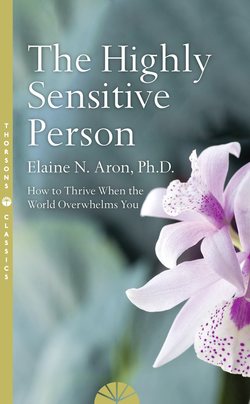Читать книгу The Highly Sensitive Person - Elaine N. Aron - Страница 24
Your Trait Really Does Make You Special
ОглавлениеThere are many fruits growing from the trait of sensitivity. Your mind works differently. Please remember that what follows is on the average; nobody has all these traits. But compared to non-HSPs, most of us are:
• Better at spotting errors and avoiding making errors.
• Highly conscientious.
• Able to concentrate deeply. (But we do best without distractions.)
• Especially good at tasks requiring vigilance, accuracy, speed, and the detection of minor differences.
• Able to process material to deeper levels of what psychologists call “semantic memory.”
• Often thinking about our own thinking.
• Able to learn without being aware we have learned.
• Deeply affected by other people’s moods and emotions.
Of course, there are many exceptions, especially to our being conscientious. And we don’t want to be self-righteous about this; plenty of harm can be done in the name of trying to do good. Indeed, all of these fruits have their bruised spots. We are so skilled, but alas, when being watched, timed, or evaluated, we often cannot display our competence. Our deeper processing may make it seem that at first we are not catching on, but with time we understand and remember more than others. This may be why HSPs learn languages better (although arousal may make one less fluent than others when speaking).
By the way, thinking more than others about our own thoughts is not self-centeredness. It means that if asked what’s on our mind, we are less likely to mention being aware of the world around us, and more likely to mention our inner reflections or musings. But we are no less likely to mention thinking about other people.
Our bodies are different too. Most of us have nervous systems that make us:
• Specialists in fine motor movements.
• Good at holding still.
• “Morning people.” (Here there are many exceptions.)
• More affected by stimulants like caffeine unless we are very used to them.
• More “right-brained” (less linear, more creative in a synthesizing way).
• More sensitive to things in the air. (Yes, that means more hay fever and skin rashes.)
Overall, again, our nervous systems seem designed to react to subtle experiences, which also makes us slower to recover when we must react to intense stimuli.
But HSPs are not in a more aroused state all the time. We are not “chronically aroused” in day-to-day life or when asleep. We are just more aroused by new or prolonged stimulation. (Being an HSP is not the same as being “neurotic”—that is, constantly anxious for no apparent reason).
